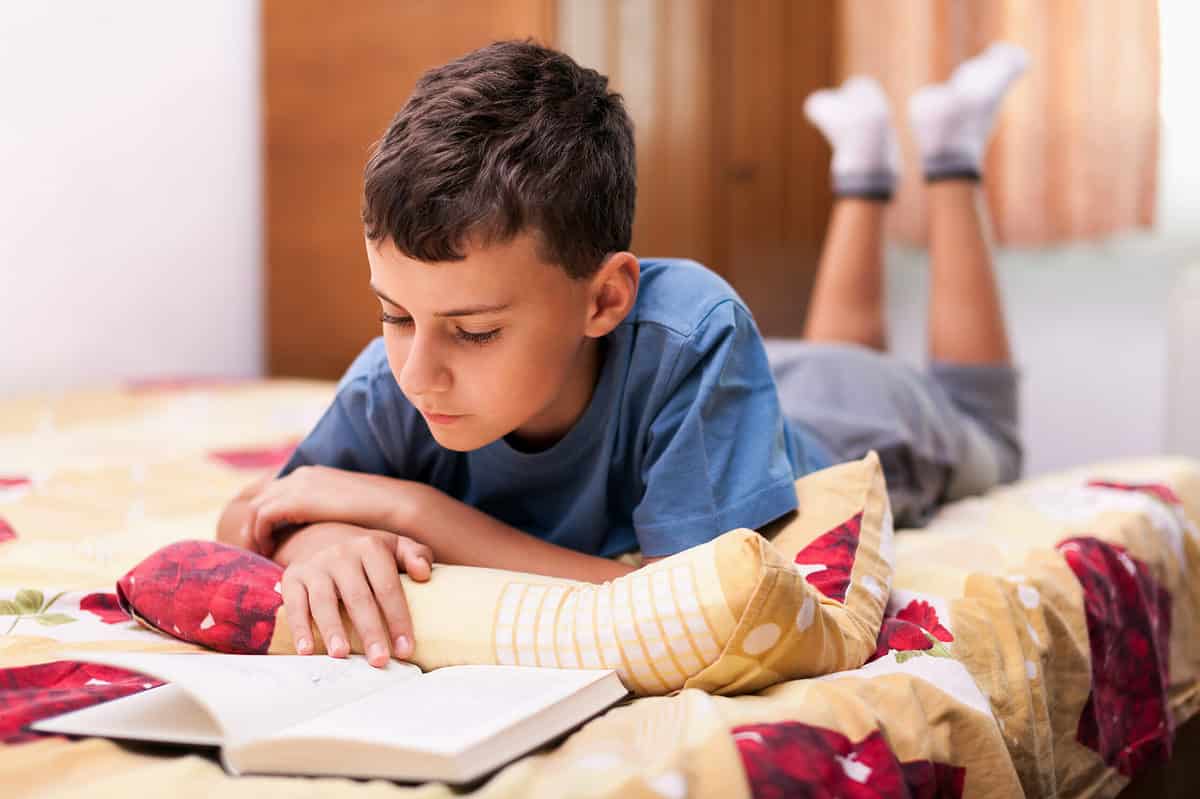When your children are young, you’re used to taking them everywhere with you. They even follow you places you don’t want them to go (like when you’re trying to have a few minutes of quiet in the bathroom). But as they grow and mature, there comes a time when your child starts to be more independent and might even be ready to stay home by themselves.
No matter what the circumstances are, there will come a day when you’ll consider leaving your child home alone. In many states, there isn’t a specific age when this is legal because children develop and mature at different rates, even though 12 years old is the standard in many places.
Whether it’s for a whole day or a few minutes, leaving your child alone for the first time can be scary for them and you. Although there are ways to tell if a child is ready for this step, you know your child better than anyone. Let’s look at how you can determine if they’re ready and how to make their first time home alone stress-free.
Key Points
- Leaving a child home alone starting at 12 is widely accepted in many places.
- Factors such as age, maturity, circumstances, and safety skills determine if a child can be left alone.
- Children should know how to call 911 in an emergency.
- Teach safety skills and procedures over time through repetition to prepare a child.
- Consider decision-making skills, ability to get along with siblings, problem-solving skills, and truthfulness when deciding if a child is ready to be home alone.
How Old Does a Child Have to Be to Stay Home Alone?
Like many parenting decisions, how old your child can be when they can stay home alone is often up to you as the parent. Of course, there are certain ages when you shouldn’t leave any child home alone. For example, you wouldn’t leave a 5-year-old home alone because no child that age is developmentally ready to care for themselves. In the UK and Canada, for instance, there were two separate cases where the court agreed that a child under the age of 10 doesn’t have the cognitive ability to stay home unsupervised.
Though there isn’t one consistent standard across each state or country, 12 years old is a widely accepted age where it's acceptable to leave a child alone. But when children start to become independent, some children may be ready at 10 or 11 while others might not be ready until they’re 13 or 14.
The first time a child stays home alone can be scary, even if it’s for a few minutes, but it’s also a positive way to help them be responsible and build independence. There are some ways to help your child feel safe during this first time and learn from the experience.
Is it Legal to Leave a Child Home Alone?
The minimum age for leaving a child home alone varies by state. While 39 states don’t have a minimum age, others have much stricter standards, such as Illinois. Illinois used to have the strictest standard when it was previously illegal to leave a child under 14 at home alone. In 2022, the Illinois House passed a new bill that reduced the age to 12.
Even in the states where there is no minimum, leaving a child alone where they are clearly in danger falls under neglect in most places. This may include leaving an older child home alone in a dangerous situation or leaving a child home alone when they are too young to care for themselves.

©Slatan/Shutterstock.com
What to Consider Before Leaving Your Child Home Alone
It's important to trust your instincts as a parent and consider any concerns you may have before leaving your child alone. It may also be helpful to consult with other parents to gather their insights. There are several factors that can help you make the decision of whether your child is ready to be left home alone. These factors include:
- Age and maturity of the child
Even though there’s a clear age when a child shouldn’t be left alone, once children start to become more independent, maturity is often a better indicator of whether they’re ready for this step. If your child is 12 years old, and you don’t think they’re mature enough to stay home alone, it’s okay to wait until they’re older. - Circumstances
The circumstances surrounding leaving your child home alone are important. If there’s an emergency where there’s an urgent need for your child to be alone for an extended period of time, it may be safer to leave them with a trusted adult in that situation. To help them feel secure staying by themselves, don’t wait until you have to leave them alone to teach them what to do. - Safety
There are some safety skills and procedures your child needs to know before they’re able to stay home alone. Being able to tell someone their full name, address, and phone number in the case of an emergency or being able to call 911 are some of the most basic skills they’ll need to have. If they’ll be staying with other children, skills such as first aid or CPR may be necessary to keep everyone safe.
When you’re trying to teach your child the skills they need to stay home alone, don’t try to teach them all at once. Preparing your child over a period of time with repetition will help them retain the information and know how to apply it if necessary. Additionally, starting with safety skills and gradually building on them, can help your child feel more confident about staying home alone.
How to Tell if Your Child is Ready to Be Home Alone
Letting your child stay home alone for the first time is an important step towards independence. Since there isn’t one specific age when your child can be left alone, it’s ultimately up to you to determine if they’re ready. Every child is different, so it's important to use your best judgment when it comes to your child. Here are some questions to consider when deciding if your child is ready to be home alone:
- Does your child generally make the right decisions and respect your rules, even when no one is watching?
- Does your child know who to call and how to dial 911 in case of an emergency?
- Do you have a neighbor or friend nearby that can step in if necessary?
- Have you walked your child through what to do if an unexpected situation comes up?
- If you’re leaving multiple children home, do your children have the ability to get along well while you’re gone? Is the oldest child responsible enough to look out for your younger children?
- Is your child generally truthful? Will your child feel comfortable contacting you if there are any concerns or problems?
- Does your child know and understand basic safety skills and procedures?
- Does your child exhibit problem-solving skills?
There are numerous other questions you might ask yourself but these give you a starting point to figure out if your child is ready for this step. It might seem like a lot of pressure to put on a child, but even though every parent hopes there’s never an emergency while their child is alone, we can’t predict when one might happen. The best thing you could do for your child’s safety is to ensure they’re prepared for any possible scenario.
Tips for Leaving Your Child Home Alone for the First Time
Once you’ve determined your child is ready to stay home alone, you’re bound to be nervous the first time. Here are some tips to help prepare your child and help you both feel more comfortable:
- Start small
You don’t want to leave your child all day when it’s the first time they’ve been alone. Try leaving them at home while you go to a store nearby, or if you need to start even smaller, drive around the neighborhood just to give them the feel of being alone without you being far away. Once they can handle being home alone for smaller amounts of time, you’ll feel more comfortable leaving them for longer. - Establish a clear set of rules
Your child knows what the rules are when you’re in the house. But it’s important to set clear rules for when you’re away. You might normally allow your child to open the door when someone knocks, but you may not want them to open it when they're alone. Make sure you let them know what’s okay and not okay for them to do when you’re not there. - Prepare them for emergencies
We hope emergencies never happen but if there is an emergency, you’ll be glad you prepped your child for it. No matter what the emergency is, it’s important to discuss possible scenarios and have a clear list of numbers to call in case of an emergency. It may be helpful to put the list somewhere your child can easily see it and access, such as on the fridge. - Let someone nearby know
Even if you’re not traveling far from your child, if you have a trusted neighbor or friend who lives nearby, check if they’ll be home while you’re gone. Ask them if they can be available in case your child needs help or in case of an emergency. You can also let your child know who they can call nearby if they need immediate help. - Check in every once in a while
While you’re away for the first time, check in on your child to see how things are going. Each check-in doesn’t need to be an interrogation, but it should be a way to help you feel you both feel more secure and hold your child accountable for their actions.
Your child may be excited about this responsibility, but then become nervous once you’re gone. This is normal! To help them feel confident in their ability to be alone, you don’t need to rush home if they call to tell you they’re nervous. Unless there is an urgent need, reassure them that you’re nearby and let them use the problem-solving skills you’ve taught them.
Takeaway
When you’re raising an infant or toddler the days might seem long but before you know it, your child will be older and more independent. Suddenly, you find yourself deciding whether or not you can leave them home alone.
Leaving children home alone can be a positive experience when they’re ready for this step and can help them build independence and confidence in their abilities. But it isn’t a step that should be rushed or something that should be done when the need is urgent. If you feel your child isn’t ready yet, that’s okay. Keep working on their safety and problem-solving skills with them and try again when they’re more mature.
The image featured at the top of this post is ©fizkes/Shutterstock.com.
